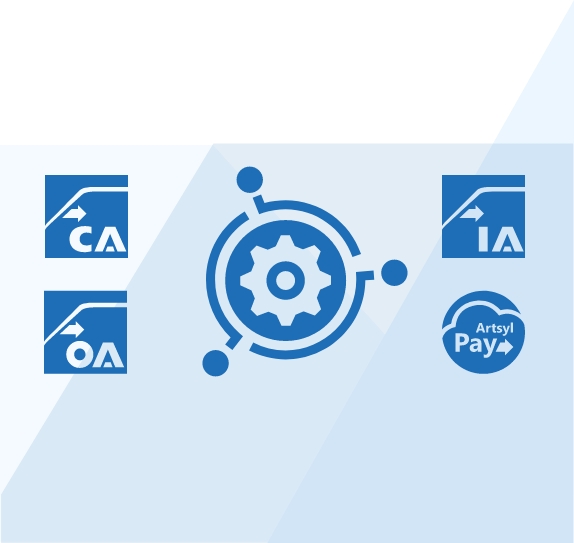In today’s world, manufacturers are under immense pressure to stay lean. Lean manufacturing principles aim to improve efficiencies, reduce waste, and increase productivity. In this blog, we’ll explore these principles in detail.
What is Lean Manufacturing?
Lean Manufacturing, also known as Lean Production or simply Lean, is a systematic approach and philosophy aiming to maximize customer value while minimizing manufacturing process waste. It is derived from the Toyota Production System (TPS) and has become widely adopted in various industries worldwide.
At its core, Lean Manufacturing focuses on eliminating activities and processes that do not add value to the final product, streamlining operations, reducing costs, and improving overall efficiency. The goal is to create a lean and agile production system responsive to customer demands while maintaining high quality standards.

with lean manufacturing practices, empowering your organization to streamline processes, eliminate waste, and drive operational efficiency like never before. Take your efficiency to the next level!
Fundamental Principles of Lean Manufacturing
Lean manufacturing has its roots in the Toyota Production System and revolves around the concept of Kaizen, which focuses on continuous improvement. The main principles of lean manufacturing include eliminating waste, optimizing the flow, producing what the customer wants when they want it, continuous improvement, and respect for people.
By implementing these principles, manufacturers can enhance their operations while driving quality and reducing costs.
- Value: Identifying and understanding what the customer perceives as valuable is crucial. Value is any action or process directly contributing to meeting customer requirements.
- Value Stream: Analyzing and mapping the entire value stream, which includes all the steps and processes involved in delivering a product or service, from raw materials to the customer’s hands. This helps identify areas of waste and opportunities for improvement.
- Flow: Establishing a smooth and uninterrupted flow of work, materials, and information throughout the value stream. This involves minimizing disruptions, reducing bottlenecks, and optimizing production sequences.
- Pull: Implementing a pull system where production is driven by customer demand. This means products or components are only produced when needed, reducing inventory and the risk of overproduction.
- Perfection: Continuous improvement is a fundamental aspect of Lean Manufacturing. It involves constantly striving for perfection by relentlessly identifying and eliminating waste, optimizing processes, and enhancing overall performance.
Unlock the full potential of your ERP and lean manufacturing initiatives with Artsyl’s intelligent process automation. By seamlessly connecting your processes, you can optimize resource allocation, reduce operational costs,
and maximize profitability.
Book a demo now
Get Lean or Get Left Behind: The Benefits of Lean Manufacturing
Lean manufacturing is a concept that has taken the world of manufacturing by storm. In today’s rapidly evolving business landscape, companies must operate efficiently, reduce waste and improve quality to stay ahead of the competition.
Lean manufacturing helps businesses meet these demands by streamlining their processes and eliminating waste in the production process. Let’s explore the benefits of lean manufacturing and why it’s essential for companies looking to remain competitive in today’s market.
Improved quality and customer satisfaction
One of the most significant benefits of lean manufacturing is improving product quality, which, in turn, leads to higher customer satisfaction levels. Lean manufacturing techniques, such as continuous improvement, standardization, and mistake-proofing, help businesses achieve a higher level of consistency, reducing product defects.
Customers receiving high-quality products are more likely to repeat their purchases, recommend them to friends and family, and leave a positive review.
Reduce waste and lower costs
Another key benefit of lean manufacturing is reducing waste in the production process. Waste can come in various forms, such as overproduction, waiting, transportation, defects, inventory, over-processing, and motion. Lean manufacturing techniques aim to eliminate or minimize these wastes, resulting in more efficient processes and lower production costs.
The Toyota Production System (TPS) was established based on two concepts: «jidoka» (which can be loosely translated as «automation with a human touch»), as when a problem occurs, the equipment stops immediately, preventing defective products from being produced; and the «Just-in-Time» concept, in which each process produces only what is needed for the next process in a continuous flow.
Toyota Production System: Company Information Vision & Philosophy
For instance, by reducing inventory, companies can save on storage costs and minimize the risk of overstocking obsolete products.
Increased productivity and efficiency
Lean manufacturing focuses on creating more value with less effort. This approach results in streamlined processes and optimal utilization of resources. By eliminating stagnant processes or procedures that waste time and reducing the need for movement or handling, businesses can shorten lead times, increasing productivity and efficiency. The result is a more agile and responsive business that can better meet customers’ demands.
Improved employee morale and retention
When businesses implement lean manufacturing techniques, they empower employees to take ownership of their work processes. Lean manufacturing encourages employees to identify waste and areas for improvement, leading to greater job satisfaction and a sense of purpose. This empowerment, combined with a safer work environment, not only boosts productivity but also improves employee retention.
Employees are more likely to remain with a company that values their contributions and provides a safe and healthy work environment.
Competitive advantage
In today’s business landscape, a company needing help to deliver high-quality products will fall behind competitors. Businesses can stay ahead of the curve, meeting customer demands while maintaining or reducing production costs. The more a business can save in production costs, the more price-competitive. In short, a lean manufacturing strategy can be a differentiator.
Intelligent Process Automation Solution
Related Videos
As you can see, lean manufacturing is not just a buzzword but a mindset that helps companies stay ahead of the competition. With the benefits above, it’s easy to see how implementing lean manufacturing in your business can significantly save time, resources, and money.
By adopting lean manufacturing techniques, businesses can improve productivity and efficiency, reduce waste, enhance product quality, retain good employees, and gain a competitive edge in the market. Ultimately, the future of manufacturing is lean, and those unwilling to adopt it may need to be included.
Want to stay ahead in the competitive market?
Artsyl’s intelligent process automation bridges the gap between your ERP system and lean manufacturing practices, allowing you to accelerate time-to-market, improve product quality, and boost overall productivity. Stay ahead of the game with Artsyl!
Book a demo now
Role of ERP in Lean Manufacturing
Lean Manufacturing and Enterprise Resource Planning (ERP) concepts are familiar, yet their relevance and importance continue to grow in the manufacturing industry. The ability to streamline operations, reduce lead times, achieve higher-quality production, and consistently deliver on customer demands are all critical success factors for any manufacturing organization.
Let’s examine the role of ERP in Lean Manufacturing – how it helps organizations to optimize their processes, boost productivity, and drive continuous improvement.
Integrated Planning and Control
Integrating Lean and ERP creates a platform for efficient planning and control of production. An ERP system provides a centralized database where an organization can store all its data, including production schedules, inventory levels, and manufacturing resources.
With Lean methodologies, many techniques are applied to reduce lead times and eliminate waste. This improves the visibility of production activities, helps to reduce inventory levels and creates a demand-pull flow in the production system. With the right ERP system in place, manufacturing organizations can quickly and efficiently respond to changes in demand.
Waste Elimination
One of the most significant advantages of integrating ERP and Lean Manufacturing is that it helps businesses eliminate waste in their processes. Lean methodologies are designed to identify and eliminate waste, reduce lead times, and optimize production processes.
By integrating Lean with ERP, you can eliminate redundant activities, cut delays, and reduce inventory. This helps optimize the production process and reduces operational costs, making the company more profitable.
Better Decision Making
Another advantage of integrating ERP and Lean Manufacturing is that it helps organizations make better decisions regarding production processes. With real-time data available through an ERP system, manufacturing organizations can make informed decisions about production schedules, inventory levels, and resource allocation.
Accurate real-time data helps organizations quickly identify issues and take corrective actions. Predictive analytics also help them plan for the future, estimate demand, and adjust their production schedules accordingly.
Increased Responsiveness
Finally, integrating ERP and Lean Manufacturing helps organizations become more responsive to customer demands. With streamlined production processes, reduced lead times and inventory levels, and increased flexibility, organizations can quickly adjust production schedules to meet customer demands.
Additionally, by implementing continuous improvement practices, organizations can continuously improve and optimize their processes, making them even more responsive to customer demands.
In conclusion, integrating Lean Manufacturing and ERP is a powerful combination that can help organizations drive operational excellence, reduce lead times, eliminate waste, and improve overall efficiency. With the right ERP system in place, manufacturing organizations can quickly and efficiently respond to changes in demand, continuously improve their production processes, and keep pace with changing market trends.
With intelligent process automation powered by the docAlpha platform, you can align your ERP system with lean manufacturing principles to foster a culture of continuous improvement and quality excellence. Identify bottlenecks, automate repetitive tasks, and leverage real-time data insights to fuel your growth.
Book a demo now
Benefits of Using an ERP for Lean Manufacturing
One of the key benefits of using an ERP for lean manufacturing is that it helps manufacturers reduce inventory levels, which is a crucial step in eliminating waste. ERP systems can also streamline supply chain management, which helps optimize the flow of goods and services.
In addition, integrating Lean Manufacturing with an ERP system offers several benefits, including:
- Enhanced Visibility: By integrating Lean principles into an ERP system, you can gain real-time visibility into production processes, inventory levels, and overall performance metrics. This allows for better decision-making and the ability to identify and address inefficiencies quickly.
- Process Automation: An ERP system can automate routine tasks, such as order processing, inventory management, and production scheduling. This reduces manual effort, improves accuracy, and frees time for value-added activities.
- Data Analysis and Continuous Improvement: By integrating Lean Manufacturing with an ERP system, you can collect and analyze valuable data on key performance indicators (KPIs), allowing you to identify areas for improvement, monitor progress, and drive continuous improvement initiatives.
- Streamlined Communication and Collaboration: An ERP system facilitates seamless communication and collaboration across different departments and teams. This improves coordination, eliminates silos, and enables cross-functional cooperation, which is essential for implementing Lean practices effectively.
- Inventory Optimization: By integrating Lean Manufacturing principles with an ERP system, you can implement just-in-time (JIT) inventory practices, reducing excess inventory and associated carrying costs. This leads to improved cash flow, minimized waste, and better customer responsiveness.
Overall, ERP software in lean manufacturing can reduce lead time and lower order cycle time. ERP systems can help manufacturers produce high-quality products while increasing productivity and reducing costs.
Challenges of Implementing an ERP in Lean Manufacturing
The implementation of ERP software in lean manufacturing can be challenging. One of the biggest obstacles is changing the organizational culture and getting employees to adopt new working methods. Manufacturers also need to ensure that the ERP system is integrated with other systems and processes, which can be complex.
Another challenge is ensuring data accuracy and consistency across different departments and locations. However, these challenges can be overcome with proper planning, training, and communication.
Leave behind all that manual data entry and disconnected processes. Artsyl’s intelligent process automation seamlessly integrates your ERP system with lean manufacturing, providing real-time visibility into operations, eliminating data silos, and enabling cross-functional collaboration.
Book a demo now
Which Industries Benefit the Most from Using ERP in Lean Manufacturing?
Lean manufacturing and ERP systems can be effectively used together in various industries to optimize operations, improve efficiency, and drive continuous improvement. Some industries where the combination of lean manufacturing and ERP is particularly beneficial include:
Manufacturing
Lean manufacturing principles align well with the core operations of various manufacturing industries. Integrating lean practices with an ERP system allows for improved production planning, inventory management, quality control, and supply chain coordination. It helps manufacturers achieve greater productivity, reduced waste, and enhanced customer satisfaction.
Automotive
The automotive industry can significantly benefit from integrating lean manufacturing and ERP systems. The complex manufacturing processes, supply chain management, and quality control requirements can be efficiently managed through an ERP system. When applied alongside ERP, Lean principles help optimize production, reduce lead times, and enhance overall operational efficiency.
Aerospace and Defense
The aerospace and defense sector requires stringent quality standards, precise inventory control, and efficient supply chain management. Combining lean manufacturing and ERP enables effective tracking of materials, streamlined production, and adherence to regulatory compliance. This integration supports cost reduction, on-time deliveries, and improved traceability.
Pharmaceuticals
The pharmaceutical industry operates within strict regulatory frameworks and requires effective control over manufacturing processes and supply chain activities. Integrating lean manufacturing with an ERP system provides real-time visibility into production processes, inventory management, and compliance tracking. It helps pharmaceutical companies ensure quality control, optimize resource utilization, and enhance product traceability.
Food and Beverage
The food and beverage industry faces challenges such as perishable inventory, complex supply chains, and strict safety and quality regulations. By integrating lean manufacturing with an ERP system, food and beverage companies can streamline production planning, optimize inventory levels, track ingredient traceability, and ensure compliance with industry standards. This integration supports efficient production, waste reduction, and improved product safety.
Electronics
The electronics industry operates in a fast-paced environment with constant product innovation and shorter product lifecycles. Lean manufacturing principles combined with ERP enable efficient demand forecasting, streamlined production scheduling, and effective inventory management. This integration supports faster time-to-market, reduced lead times, and improved operational efficiency.
Medical Devices
The medical device industry requires strict adherence to quality standards, precise inventory management, and efficient production processes. Integrating lean manufacturing with an ERP system enables streamlined production planning, enhanced traceability, and effective control over compliance and regulatory requirements. This integration supports cost reduction, improved product quality, and faster time-to-market.
Best Practices for Implementing an ERP in Lean Manufacturing
Following some best practices when implementing an ERP system in lean manufacturing is essential to achieve the best results.
- First, it’s essential to define the goals and objectives of the implementation clearly.
- Secondly, manufacturers must ensure that the ERP system is integrated with other systems and that all employees can access the necessary data.
- Thirdly, proper training and onboarding are crucial to ensure that everyone in the organization knows how to use the system.
- Finally, ongoing maintenance and support are necessary to keep the system running smoothly.
As manufacturers strive for greater efficiency, embracing lean manufacturing principles is essential. ERP systems represent a valuable tool for achieving these goals. Manufacturers can increase efficiency and improve productivity by reducing inventory levels, optimizing the flow of goods and services, and streamlining supply chain management.
While implementing an ERP system can present some challenges, proper planning, communication, and training can help overcome these obstacles. Utilizing an ERP system in lean manufacturing can ultimately lead to cost savings, quality improvements, and greater customer satisfaction.
With Artsyl’s intelligent process automation, your organization can make informed, data-driven decisions based on your ERP system. Drive your business forward with real-time analytics, actionable insights, and strategic decisions.
Book a demo now
FAQ
What is Lean Manufacturing?
Lean Manufacturing is a systematic approach and philosophy that maximizes customer value while minimizing manufacturing process waste. It aims to streamline operations, reduce costs, and improve efficiency by eliminating non-value-added activities.
What is an ERP system?
An ERP (Enterprise Resource Planning) system is a software solution that integrates various business functions and processes into a unified system. It provides real-time visibility and control over a company’s operations, including manufacturing, inventory, finance, human resources, and more.
How does Lean Manufacturing relate to ERP?
Lean Manufacturing and ERP are complementary strategies that can work together to improve operational efficiency. While Lean Manufacturing focuses on eliminating waste and optimizing processes, an ERP system provides the necessary tools and data integration to support Lean principles and enable effective management of resources.
Can an ERP system support Lean Manufacturing implementation?
An ERP system can support Lean Manufacturing implementation by providing the necessary tools for data integration, process automation, and performance tracking. It helps standardize operations, facilitates lean process flow, and enables continuous improvement initiatives.
Is it necessary to have an ERP system to implement Lean Manufacturing?
While an ERP system is not a prerequisite for implementing Lean Manufacturing, it can significantly enhance its effectiveness. Integrating Lean principles into an ERP system streamlines operations, improves data visibility, and supports data-driven decision-making, leading to better results.
What challenges might arise when integrating Lean Manufacturing with an ERP system?
Organizations may face challenges when integrating Lean Manufacturing with an ERP system, including data quality and consistency, change management, customization requirements, and aligning ERP functionalities with specific Lean principles. However, proper planning, stakeholder engagement, and expertise can effectively address these challenges.
Why is ERP critical in lean manufacturing?
Enterprise Resource Planning (ERP) is a software solution that can help manufacturers implement lean manufacturing principles. It enables easy tracking of material and product flows, facilitates real-time data analysis, and enables seamless collaboration between teams.
In lean manufacturing, ERP helps optimize inventory levels, reducing waste and assisting manufacturers in managing product flow efficiently. It can improve manufacturing planning, which is vital to producing what the customer wants when they want it. Additionally, ERP systems can provide information for continuous improvement.



 ERP or Manufacturing Execution System: Which Is Better?
ERP or Manufacturing Execution System: Which Is Better? Which Manufacturing ERP Software Systems Are the Best for You?
Which Manufacturing ERP Software Systems Are the Best for You? ERP Software for Manufacturing: All You Need to Know
ERP Software for Manufacturing: All You Need to Know Sales Order Processing:
Sales Order Processing: How an ERP System Can Support Your Manufacturing Process
How an ERP System Can Support Your Manufacturing Process Manufacturing ERP: 10 Benefits for Manufacturing Companies
Manufacturing ERP: 10 Benefits for Manufacturing Companies
